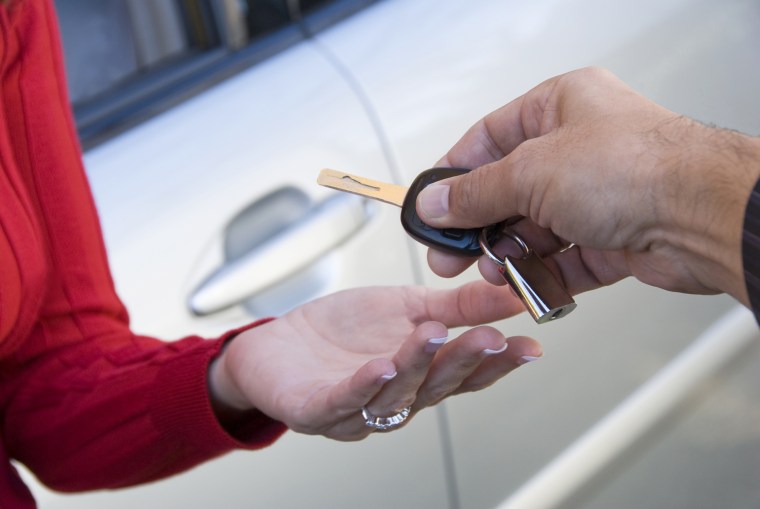Chalk another one up for the recession and how it has altered life in America. New analysis by the automotive research firm Polk shows Americans can now expect to buy fewer new cars during their lifetime.
On average, we’ll buy almost four fewer new cars by the time each of us hits 76 years old, the age when Polk believes most people are done buying new vehicles.
CNBC.com: Used car prices keep sliding, but for how long?
“The days when you bought a vehicle for 4 or 5 years are likely over,” said Anthony Pratt, Polk director of forecasting.
How much have things changed since before the recession? Here is Pratt’s analysis.
Buying new, but not as often
We’ve talked for some time about Americans holding on to their new cars longer and the reasons have been well-documented. Cars last longer, and as their prices have gone up, people are less inclined to take on a monthly payment. Since the recession they have stretched out the length of time to pay off a new loan. In other words, people now expect to be in their car six, seven or eight years after they buy it.
CNBC.com: Cars that are more expensive used
That’s a dramatic change from a well-established rule in the auto industry. For years, automakers counted on Americans to buy, on average, a new car or truck every three or four years. Some of that was due to our vehicles starting to show their age sooner.
“When we were younger, we had to replace vehicles out of necessity. That’s not the case anymore," Pratt said. "The vehicles are much better quality, they’re lasting much longer, so really, there is no need to replace vehicles.”
Fewer chances for automakers to retain/steal customers
Because Americans are now forecast to buy fewer new vehicles in their lifetimes, it means automakers will have fewer chances to steal customers.
CNBC.com: China only part of the problem for U.S. auto parts makers
The “conquest buy,” when one brand persuades a customer to switch from one brand to another brand, has long been a crucial part of building sales and market share. This is how the Japanese automakers, and more recently, the Korean automakers gained market share in the U.S.
That’s tougher with people holding onto their new cars longer. In the past, you would start looking for a new car every three or four years, and when you did you might start looking at several brands, not just the one you were driving.
Conversely, since we are going longer between new car purchases, what we want or need in a new model may change more as the years pass. As a result, Pratt said, the brand we are driving may not have the type of vehicle, or styling, we want for the next stage of our life.
“It’s more difficult to retain a buyer, especially if they’ve changed stages in their lifetime,” Pratt said. “Their needs for a vehicle may have changed, so they may abandon the brand they’ve driven for many years.”
More business news:
